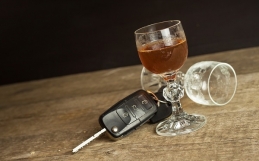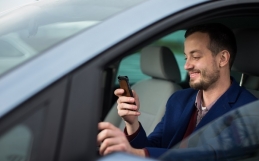When you witness a car crash, you may naturally think that it’s your duty to act as a Good Samaritan and assist those injured or involved in the crash. You may hesitate to do so, however, thinking that in attempting to help, you might do something wrong and invite a lawsuit or other punishment. Are you right to hesitate?
The question is legitimate: “Injured people have actually sued well-intentioned passersby and health care providers who tried to help them.” (all-about-car-accidents.com). In most states, however, you are protected by ““Good Samaritan” laws that protect good people from liability when they are trying to provide assistance following a vehicle crash.
North Carolina has a law (General Statutes 20-166, passed in 2013) governing “duty to stop in event of accident or collision; furnishing information or assistance to injured person, etc.” Those who assist by rendering first aid or emergency assistance at the scene of a motor vehicle crash is exempt from civil liability, and “shall not be liable in civil damages for any acts or omissions relating to the services rendered, unless the acts or omissions amount to wanton conduct or intentional wrongdoing,” according to recreation-law.com.
NC law also specifically limits the liability of any person who “receives no compensation” for emergency medical care services to a victim of a car crash, including a volunteer health care professional or a member of a rescue squad:
“When the necessity of immediate health care treatment is so reasonably apparent that any delay in the rendering of the treatment would seriously worsen the physical condition or endanger the life of the person, shall not be liable for damages for injuries alleged to have been sustained by the person or for damages for the death of the person alleged to have occurred by reason of an act or omission in the rendering of the treatment unless it is established that the injuries were or the death was caused by gross negligence, wanton conduct or intentional wrongdoing on the part of the person rendering the treatment.”
In 2015, partly in response to the growing opioid epidemic, North Carolina amended its Good Samaritan law governing limited protection to 911 callers who witness a drug or alcohol overdose. “Under the rewritten law, 911 callers have to provide their names to law enforcement to receive immunity; they will not be subject to arrest or parole revocation; and the underage victim of an alcohol poisoning, as well as the caller, will be protected from prosecution. Law enforcement who arrest a person entitled to immunity will not be subject to civil liability.
Pharmacists will also be able to dispense Naloxone – an overdose reversal drug – under a physician’s standing orders,” reported starnewsonline.com.
Richard Manger, principal of Manger Law Firm, has extensive experience in litigation and settlements, with a focus on personal injury. We are proud of the strong relationships of loyalty and trust we develop with our clients. We go above and beyond to achieve the best possible outcome in your case. You can contact Richard Manger via email at ram@mangerlaw.com, or by calling (336) 882-2000.






